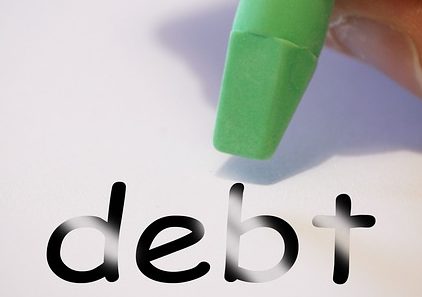Debt Dilemmas— How to Efficiently Manage Debt Consolidation

Consolidating your debts is one of the easier ways to gain control of consumer debt that has ballooned out of control. Because it brings all of your debts under one umbrella, you only pay one bill every month, and more importantly, you are only assessed interest on one loan as opposed to multiple loans. With some of the better loan programs, you can negotiate for a lower payment that translates into a lower interest rate when compared to paying on multiple accounts with multiple rates.
Many debt consolidation providers, like Latitude Finance, can help you achieve financial freedom by setting up a loan payment program that can help you get financially fit. However, the most important part of managing debt in this way is choosing a loan program that best fits your needs. With the numerous options available to you, you can soon find your way to financial freedom.
Let’s take a look at some great ways to efficiently manage a debt consolidation plan.
Determine Whether Debt Consolidation is Right for You
Before even looking into entering an agreement, determine whether or not debt consolidation is the right choice. For homeowners, you might be able to draw on the equity in your home or refinance if the rates are lower.
For those who do not own a home, you might find that by simply transferring balances you can salvage your credit. Another route might be as simple as taking out a personal loan to consolidate your debt. Either way, while debt consolidation is a great option, it might not necessarily be the best course for you.



Research, Research, Research Loan Programs
The whole purpose of consolidating your loan is to remedy overextending yourself with credit. To gain the maximum advantage, research several loan programs and make comparisons to see which ones offer you the best rates. Typically, loans with shorter terms translate into lower interest rates and vice versa.
Factors you want to pay attention to include rates, fees and charges. Again, you maximize your benefit by making sure that the program offers you both a lower payment and interest than your current credit obligations combined. Also, because the program usually has a term limit, some programs penalise you for paying the loan off early.
Set up a Budget
If you consolidate your debt, make sure to include this loan as a part of a budget plan that addresses all aspects of your financial life. Setting achievable financial goals and objectives can help you reach financial freedom. As a part of these objectives, create a fluid budget that is flexible enough to allow for emergencies and other expenses that come up on a monthly basis. One of your chief objectives should be to pay down this debt, but another objective can be to find ways to offset other unneeded expenses so that the extra money can be applied to the loan. Whatever your financial goals, a budget that is frequently evaluated is integral to making the most out of any debt consolidation program.
Check Your Credit Scores Routinely
As a part of managing your loan, check your credit report to make sure all three credit rating bureaus have accurate reports on file. Most reporting systems allow one free report a year, but most financial advisors counsel consumers to look at their credit file every six months to evaluate it for changes. If there are any discrepancies, address them as soon as possible because these inaccuracies can show up later when you apply for other loans.
Managing Your Finances as a Part of Debt Consolidation
Applying and being approved for a debt consolidation loan is only part of recovering from financial problems. As a part of a program that includes managing debt, these programs work best when the interest rates and the overall payment reduce your monthly payment. With a plan that includes a clear achievable budget and a plan to review your credit, you have created a system of effectively managing and paying on your consolidation loan.


